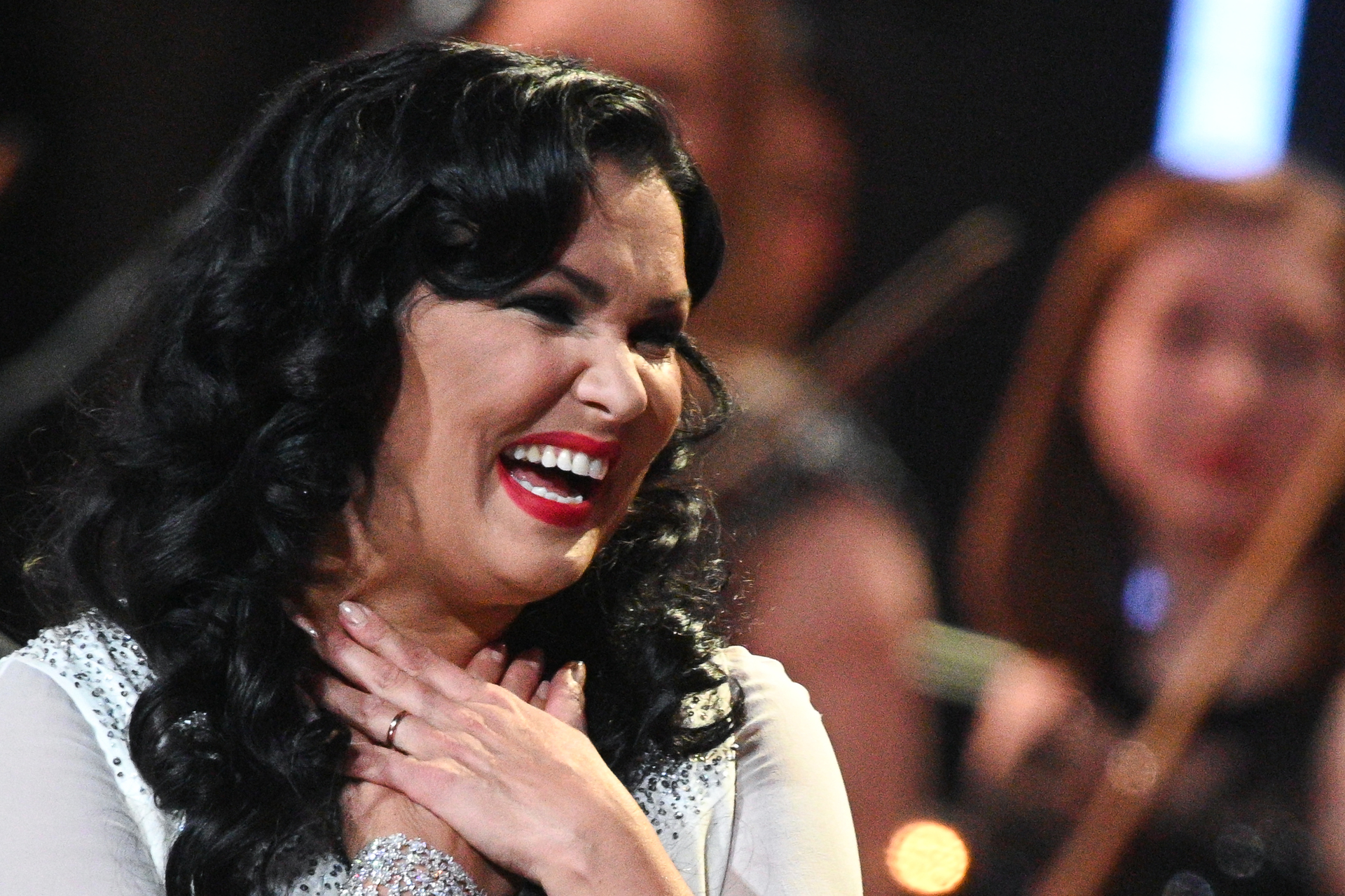Russian opera singer Anna Netrebko performed for the first time after a break on the stage of La Scala theater in Milan.
The solo concert was held on May 27 and ended with loud applause and requests to perform an encore.
The rich program began with the aria Lo son l'umile ancella, for which Netrebko shared the stage with mezzo-soprano Elena Maksimova, young Italian violinist Giovanni Andrea Zanon and pianist Malcolm Martino.
In total, the program included about 15 works - from Richard Strauss and Ruggiero Leoncavallo to Pyotr Tchaikovsky.
The end of each performance was accompanied by thunderous applause.
On social networks, the opera star shared photos from this exciting event.
In the published footage, Netrebko accepts thanks, signs autographs and, with a happy smile, collects bouquets of flowers from fans after the concert.
Also last week, on May 25, the opera singer gave a solo concert at the Paris Philharmonic.
As the representative of the vocalist in Russia, the CIS and the Baltic countries, Maxim Berin, told RIA Novosti, the event was very anticipated - all tickets were sold out in advance, the phone was torn from those who wanted to attend the concert.
RIA News
© Ramil Sitdikov
In early March, it became known that the Russian opera singer would not participate in the next productions of the Metropolitan Opera.
The reason was the failure to comply with the requirement to publicly criticize President Vladimir Putin.
For the same reason, the Bavarian State Opera also stopped working with the singer.
At the end of March, the artist herself announced on social networks that she was going on a sabbatical, explaining that now was not the right time for her performances.
Later, Anna Netrebko published a post in which she expressed sympathy for the victims of the special operation in Ukraine.
She also stressed that she is not a member of any political parties, does not receive financial assistance from the Russian government, but lives and pays taxes in Austria.
At the same time, the artist said that she loves her homeland, and announced her intention to return to the stage in May.
This happened even earlier - at the end of April, Netrebko performed in Monaco, replacing the sick Italian Maria Agresta in Giacomo Puccini's opera Manon Lescaut.
Anna Netrebko is not the only Russian artist whose work has been affected by the events in Ukraine.
So, in March, several organizations stopped working with the Russian musician Valery Gergiev.
He was dismissed from the post of chief conductor of the Munich Philharmonic Orchestra due to the fact that he did not publicly condemn the hostilities, as demanded by the mayor of Munich, Dieter Reiter.
In addition, Carnegie Hall refused to cooperate with Gergiev - the organization canceled the performances of the Mariinsky Theater, which were supposed to be led by Gergiev, and the Vienna Philharmonic Orchestra suspended the conductor from participating in the upcoming US tour.
In addition, Latvia closed entry for a number of well-known Russians for supporting a military special operation.
These included Philip Kirkorov, Polina Gagarina, Tina Kandelaki, Victoria Daineko, Vladimir Mashkov, Nikolai Rastorguev, Denis Matsuev, Valery Gergiev, Vladimir Vinokur, Evgeny Petrosyan, Nikita Mikhalkov and others.
Latvian Minister of Foreign Affairs Edgars Rinkevics then noted that the list would be updated.
The events in Ukraine also affected the work of other stars.
Large recording companies suspended their activities in Russia - Warner Music Group, Sony Music Group and Universal Music Group, which collaborated with such performers as Eldzhey, Lolita, Bianka, Ani Lorak, Yegor Creed, Sergey Lazarev, Alsu, Nike Borzov and the group Little big.
At the same time, the organizations noted that they would not dismiss employees and fulfill all obligations to them.
The political situation has also affected the film industry.
The streaming service Netflix left the Russian market and stopped the production of Russian original projects - the series Anna K, ZATO, Nothing Special and an untitled film starring Alexander Petrov.
Also, the largest Hollywood studios refused to show their new films in Russia.

